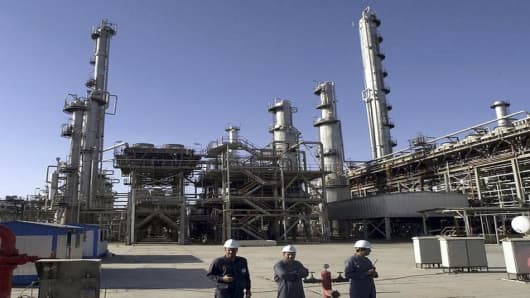As news and rumors of Iranian belligerence boil, trader Ira Eckstein isn't surprised that oil prices swung broadly Thursday. He and Kenneth Timmerman, Middle East Data Project president, told "Power Lunch" viewers what to expect from petroleum -- and from Iran.
Eckstein, of Area International Trading, said that the market "tends to overreact" to any news -- such as reports that the USS Nimitz carrier strike group will steam to the Persian Gulf Monday. Oil prices climbed to more than $66, sank back below that mark, and finally closed at $66.03.



